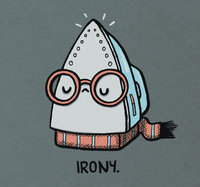The Autonomic Nervous Disorder Diagnosis

Throughout my court case, the Judge repeatedly supported an unfounded claim made by the defense that my condition was caused by “Autonomic Nervous Disorder”.
“Autonomic Nervous Disorder” is a diagnostic term commonly used in Japan to describe: (A) Psychosomatic symptoms caused by a variety of stress / anxiety conditions, or (B) Any other condition where the Autonomic Nervous System acts in a way that produces symptoms, especially in cases where they are not sure of the cause.
The irony here is that benzodiazepine dependency actually causes both the above with the autonomic system becoming hyperactive.
Therefore, the court’s willingness to accept this loose fitting term (with absolutely no scientific basis) as a credible counter argument is, not only fundamentally wrong, but also gives way to significant room for error, confusion and misjudgment. To use an expression from Prof. Ashton, it is yet another example of “muddled thinking”.
Further, the courts failed to consider the fact that the “Autonomic Nervous Disorder” diagnosis was only made for the very first time following about 7 months of benzodiazepine prescriptions and never before. They also failed to consider that at the time the “Autonomic Nervous Disorder” diagnosis was made, I was not my normal self because I was completely drugged out both physically and mentally.
As Prof. Ashton has confirmed “Benzodiazepines affect the whole nervous system, both the central nervous system and the autonomic (sympathetic and parasympathetic) nervous system which is controlled by the CNS (Central Nervous System)”. The initial effect is to decrease nervous system activity but with regular use, the whole system becomes hyperactive due to the development of tolerance (See appendix 5 A of Supreme Court Appeal).
She adds “The autonomic nervous system responds to anxiety and stress from any cause. Benzodiazepine tolerance, dependence and withdrawal all cause stress and anxiety, so the response of the autonomic nervous system is the same as its response to any other type of anxiety” (See appendix 5 D of Supreme Court Appeal).
Admittedly, the above comments from Prof. Ashton were only made available after the High Court verdict was handed down, however, Dr. Judson did explain that dependency can produce the very symptoms they are designed to treat, i.e. anxiety symptoms, and gave a detailed explanation on how to differentiate between mere symptoms of stress and those of benzodiazepine dependency in article 3.3 of Addiction report Three. This clearly wasn’t considered by the Judge in the verdict at all.
For example, there was no consideration given to the fact that I was still maintaining good health during times of increased stress (during court proceedings) which clearly supports that I am not a person susceptible to “Autonomic Nervous Disorder” or an anxiety disorder as was being claimed by the defense. This had been clearly outlined in article H of Statement Three and in article 3.1.9 of Addiction Report Three.
Another problem with the “Autonomic Nervous Disorder” diagnosis is that the name itself is misleading. This is because in cases of stress/anxiety or benzodiazepine dependency, the entire nervous system becomes hyperactive, which can manifest itself in a wide variety of symptoms, however, this reaction is not a disorder, rather it is the body’s natural response to such situations and/or conditions (See appendix 5 E of Supreme Court Appeal).
Backed by appended clarifications from Prof. Ashton, I made a last ditch effort to bring the problems associated with the ambiguous and misleading diagnostic term of “Autonomic Nervous Disorder” to the attention of the courts in articles 2.2.4~2.2.6 of my appeal to the Supreme Court of Japan.
Top of Page
To argue that someone wasn’t benzodiazepine dependent because their nervous system was hyperactive resulting in associated symptoms (called Autonomic Nervous Disorder in Japan, even though it’s not a disorder…) makes about as much sense as trying to rule out fire based on the fact there was smoke.
Even in cases where patients may have had a hyperactive nervous system and associated symptoms prior to commencing their prescription drugs, benzodiazepine dependency can make this condition worse – a lot worse!
So, when prescribed long term, which is against recommendations, it can be like trying to put out a fire with gasoline - doused initially, but then leers up with much voracity making it much-much worse than before.
Hence the reason why it is recommended they are not prescribed for more than 2-4 weeks…
Top of Page
“Benzodiazepine withdrawal is a severe illness. The patients were usually frightened, often in intense pain, and genuinely prostrated. The severity and duration of the illness are easily underestimated by medical and nursing staff, who tend to dismiss the symptoms as "neurotic." In fact, through no fault of their own, the patients suffer considerable physical as well as mental distress.” (Source: Benzodiazepine Withdrawal: An Unfinished Story. Prof. C. H. Ashton. 1984).
Top of Page

One notable point was that my condition continued to improve even whilst being exposed to the most intense stress imaginable during court proceedings which was highlighted in article 3.1.9 of Addiction Report Three.
This fact puts paid to the defense’s claim that my condition was simply caused by anxiety/stress alone and that I was prone to such.
The reason being is that someone who is simply suffering from stress and prone to it wouldn’t be improving under increasingly stressful circumstances. It simply does not stand to reason.
However this fact was conveniently omitted from the High Court Verdict – see Justice or Not?
Top of Page

When proceedings for my case first began with mediation, “confusion” appeared to be the main tactic of choice employed by the defense. As written in article 7 of my statement, which was checked by my lawyer, “…both sides have continued to argue on different planes, and the mediator has been at loggerheads appearing quite fed up over the whole thing.”
However, after proceeding to the Tokyo District Court, and after Dr. Judson had introduced the application of the DSM-IV-TR into the equation, the defense were forced to address specific issues, so they needed to find a new tactic to maintain the element of confusion (according to my then lawyer, when there is doubt, the defense usually get the benefit of that doubt).
Enter the term “Autonomic Nervous Disorder” (The Perfect Smokescreen). Although this would never work in Western countries (because it is not recognized), and despite being totally unfounded (see above), it obviously helped the defense here in Japan to achieve their objective of avoiding any accountability for my dependency and associated damages, and the courts were happy to support this.
Top of Page
Since my court case, and after having done a lot of research, I have become aware of a growing trend among medical practitioners to label many conditions using the word “disorder” even in cases where conditions can only be considered as normal bodily responses to given situations or circumstances.
In cases of stress, the reality is, using practical stress management techniques and addressing the causes in a practical way can reduce hyper-function of the nervous system together with the stress symptoms along with it, without any need for drugs.
So, why all the fancy diagnostic names, and why all the drugs?
Top of Page

The primary language of this website is English. Japanese appears as translations only (except for some original court documents).
These translations have been done by many different translators including me. Therefore, there are differences in quality and styles.
Please understand that I am not native Japanese and subsequently there are parts that may sound unnatural in Japanese.

Some parts of this website still have not been translated into Japanese. If anyone (native Japanese) would like to help on a volunteer basis, please contact mentioning the part you would like to translate. Thank you.
“If any drug over time is going to just rob you of your identity [leading to] long, long term disaster, it has to be benzodiazepines.”

Dr John Marsden,
Institute of Psychiatry, London
November 1, 2007
“Benzos are responsible for more pain, unhappiness and damage than anything else in our society.”

Phil Woolas MP,
Deputy Leader of the House of Commons,
Oldham Chronicle, February 12, 2004
“The benzodiazepines are probably the most addictive drugs ever created and the vast army of enthusiastic doctors who prescribed these drugs by the tonne have created the world's largest drug addiction problem.”

The Drugs Myth, 1992
“It is more difficult to withdraw people from benzodiazepines than it is from heroin.”

Professor Malcolm H Lader
Institute of Psychiatry London
BBC Radio 4, Face The Facts
March 16, 1999
What are benzos for again?

The only time I’ve ever needed to visit a psychologist in my life was AFTER (wrongfully) being prescribed benzodiazepines…







